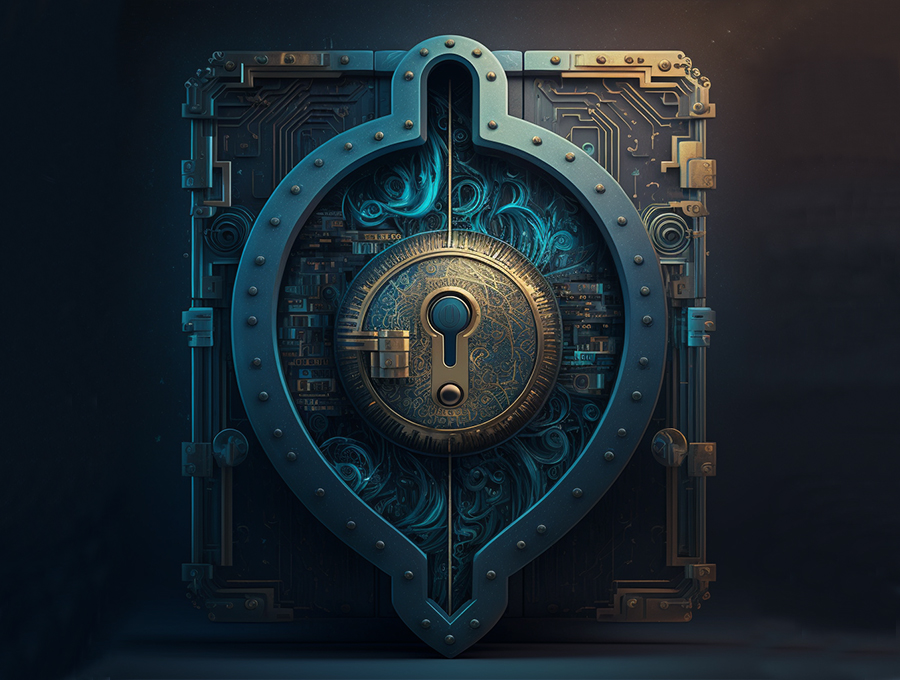Post-quantum cryptography (PQC) is an emerging field of study that focuses on developing cryptographic algorithms that can withstand attacks by quantum computers. In this article, we will explore the concept of post-quantum cryptography, why it is essential, the problems it aims to solve, its significance, future potential, challenges, and possible solutions.
What is Post-Quantum Cryptography?
Post-quantum cryptography is a subfield of cryptography that focuses on developing algorithms that are secure against attacks by quantum computers. These algorithms are designed to replace the existing cryptographic systems, which are vulnerable to attacks by quantum computers. In PQC, the cryptographic algorithms are based on problems that are difficult for both classical and quantum computers to solve.
Why is Post-Quantum Cryptography Essential?
Quantum computers are a significant threat to current cryptographic systems, such as RSA and Elliptic Curve Cryptography (ECC). The use of quantum bits (qubits) in quantum computers is fundamentally different from classical bits used in conventional computers. Quantum computers can solve some computational problems much faster than classical computers, which threatens the security of current cryptographic systems. Therefore, post-quantum cryptography is essential to develop secure algorithms that are resistant to attacks by quantum computers.
The Problems Post-Quantum Cryptography Aims to Solve
PQC aims to solve the following problems:
- The vulnerability of existing cryptographic systems to quantum attacks
- The need for cryptographic algorithms that are resistant to both classical and quantum attacks
- The need to develop cryptographic algorithms that are efficient, scalable, and standardized.
The Significance of Post-Quantum Cryptography
It is significant because it ensures that digital communications remain secure in a post-quantum world. The use of quantum computers will become increasingly prevalent in the future, which means that current cryptographic systems will become obsolete. Post-quantum cryptography provides a solution to this issue by developing new algorithms that can resist both classical and quantum attacks.
The Future Potential of Post-Quantum Cryptography
The future potential of PQCis significant because it ensures that digital communications remain secure even in a post-quantum world. The development of new algorithms that are resistant to both classical and quantum attacks will ensure the continued security of digital communications. The potential benefits of post-quantum cryptography include:
- Security against quantum attacks
- Increased trust in digital communications
- Better protection of sensitive data
- The ability to develop new and innovative applications that rely on cryptography
The Challenges
The challenges of PQC include the following:
- The need for a deep understanding of both cryptography and quantum computing
- The development of efficient and scalable algorithms
- The need for standardization and adoption of new algorithms
- The migration from current cryptographic systems to post-quantum systems, which will require significant changes to many digital communication systems.
Possible Solutions to the Challenges
Possible solutions to the challenges of PQC include the following:
- Collaboration between experts in cryptography and quantum computing
- Investment in research and development of efficient and scalable algorithms
- Standardization and adoption of new algorithms
- The gradual migration from current cryptographic systems to post-quantum systems, which will allow for a smoother transition.
In conclusion, post-quantum cryptography is a crucial area of study that aims to develop cryptographic algorithms that can resist attacks by quantum computers. While it presents many challenges, the potential benefits are significant, and it is crucial for the continued security of digital communications in the future. The development of new algorithms that are resistant to both classical and quantum attacks will ensure the continued security of digital communications.
Learn about zero knowledge proofs here
Found this article educative, follow us on Twitter @Admiano


